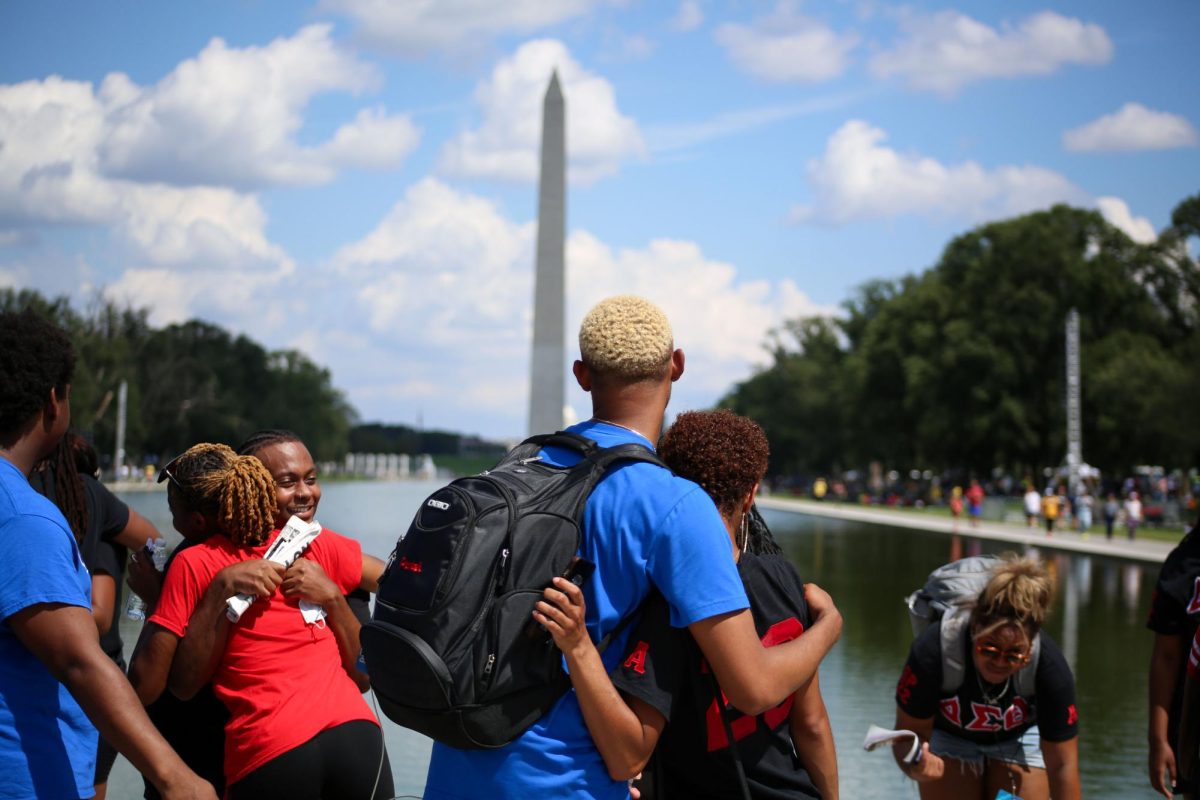“Not A Commemoration, A Continuation,” was the title for Saturday’s celebration honoring the 60th anniversary of the March on Washington.
Thousands of demonstrators convened at the Lincoln Memorial, where Martin Luther King Jr. delivered his renowned “I Have a Dream” speech in 1963. The event, hosted by Rev. Al Sharpton’s National Action Network and the Kings’ Drum Major Institute, celebrated civil rights achievements, like the movement’s growing inclusivity of the LGBTQ+ community and the election of a Black president and vice president.
The daylong event began with speeches from several high-profile activists and politicians including Sharpton, House Minority Leader Hakeem Jeffries (D-NY) and Martin Luther King III, King’s eldest son. Speakers said King and other civil rights leaders paved the way for a more equitable society but emphasized that more work needs to be done to address current issues, like the protection of voting rights and affirmative action, to achieve complete justice.
Maya Wiley, the president and CEO of the Leadership Conference on Civil and Human Rights, said the fight for civil rights is not over among communities of color. She said children of color must be given mental health resources instead of being criminally punished for minor offenses and called for an increase in school funding.
“We are marching to say we are this country,” Wiley said. “And we will not stop marching until we are all free.”
The speeches were followed by a march from the Lincoln Memorial to the MLK Jr. Memorial near the Tidal Basin, where attendees were greeted by the sound of the Oscar-winning song “Glory” by Common and John Legend playing on speakers and listened to speeches by Sharpton and King’s nephew, Isaac Newton Farris Jr.
Shavon Arline-Bradley, the president and CEO of the National Council of Negro Women, said she had “righteous rage” because of the obstacles Black women continue to face in the United States, including being paid less than white men and Supreme Court decisions that continue to “marginalize our people.”
“In one breath, I’m grateful to be on the stage of American dreams, but in 2023, as a Black woman, I’m looking at an American nightmare right before me,” Arline-Bradley said. “Watching those who intended to desecrate democracy and turning back the hands of time, watching so-called leaders in government hide behind the law to strip away the agency of a people.”
Rep. Debbie Wasserman Schultz (D-FL) said King and “the movement” can be proud of the work done to advance justice for all but that advocates “still yearn to make this union more perfect for everyone,” like the civil rights leaders before them.
“Their march traveled far but that dream has not yet arrived for many,” Wasserman Schultz said. “So we are here today to keep marching on until victory is won.”
K’Shawn McNair, a sophomore majoring in neuroscience and president of the Gamma Alpha Phi Chapter of Phi Beta Sigma Fraternity, Inc., said he volunteered with the medical and first aid staff at the event because he wanted to support his community in the continuation of the fight for freedom.
“There’s people willing to fight for what they believe in,” McNair said. “And people were ready to go out and speak for hours and hours for a movement.”





